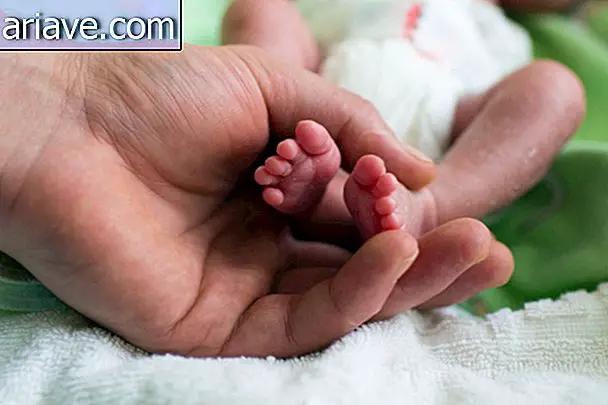Meet the Indonesian tribe that keeps the dead at home for up to 1 year
After losing her husband, reporter Amanda Bennett embarked on an inner journey to discover some world traditions about how to approach death in different cultures. For National Geographic this April, Amanda brings the Torajana vision to her demise.
Torajanas live in isolated regions of Sulawesi Island in Indonesia. There, death, as we know in the West, is only a transitional ritual: therefore, one's body is never buried soon after one's death. Rituals usually take days, weeks and even years to happen.
Meanwhile, the bodies of departed ones continue to be part of the family, receiving visitors and even giving advice. This is the case of Yohana Palangda's mother, who was seen as a kind of guru in her village and, even more than a year after her death, still has a special place in her daughter's house.

Food for the dead
In this state, the deceased is called “ makala ”, meaning “sick person”. Your body is treated with formalin, a mixture of formaldehyde and water that keeps your flesh from rotting. Over time, this turns into a mummification process. The smell of the corpse remains, but it is attenuated with sandalwood incense.
Wakes are often big celebrations - just like a wedding or a baptism, for example. They take time to happen because in the Torajana tradition the whole family needs to be together to say goodbye to the loved one. A kind of “pre-funeral” happens shortly after the person's death, who then returns home waiting for the special funeral.
Back home, many people even serve meals to the deceased. Journalist Amanda tells of a family who had lost her mother two weeks earlier but still served her four meals a day: breakfast, lunch, afternoon tea, and dinner.

Great Funeral Celebrations
Great wakes are able to stop a village. Not even ambulances with sick people can get past the crowd. The journalist defined it this way: "Here, death outweighs life." In the funeral rite, a large amount of buffalo is killed to be offered to the guests and to guide the deceased "over there."
It is misleading, however, to think that the Torajanos worship death: quite the contrary, they seek Western treatments so that the sick person does not end up dying. And when that happens, sadness takes over the family, just like in the West. What changes, however, is the way one looks at this period after death.
All of this began with the arrival of Dutch missionaries in the region, who turned this traditionally Muslim part of the country into a Christian stronghold. Funerals follow the reading rites of specific Bible texts, but it is not yet known when the culture of delaying burials began. By the early 20th century, when writing came to the region, people were already documenting this kind of behavior.

Funeral tourism
The journalist tries to draw a parallel between what happens in Indonesia and what we practice in the West. Quoting writers Colin Murray Parkes and Holly G. Prigerson from the book “Bereavement, ” Amanda recalls that it is common here to have a kind of contact with our deceased ones.
Often we feel their presence and keep talking to them even after their departures. It is not uncommon even to claim to be able to see them in spectrum. How different is this from the Torajana culture, which roughly does the same things, only with the bodies of the people in the room?
This tradition also serves as tourism: mainly Europeans and Australians often visit the Sulawesi region to learn about its funeral rituals. For locals, this is proof of how important the family is and why it should remain in their culture.

Second funeral
You may find an excuse not to go to a wedding, but if you have the opportunity to attend a relative's funeral, will you really miss that last chance? Most certainly not. So much so that in Indonesia they also serve you to meet distant family members.
The funeral is so important to them that it is repeated after a few years. In this second ritual, called ' ma'nene', the bodies of the ancestors are dug up to receive a new shroud, as well as snacks and cigarettes. This turns out to be a way of “missing the homesick” of those who have left for the longest time.
Amanda Bennett concludes her article by raising some questions: “How do we westerners get so far from death? How do we lose the feeling of being connected with each other, with society and with the universe? It is the reflection ...

***
How do you face death? Comment on the Mega Curious Forum











